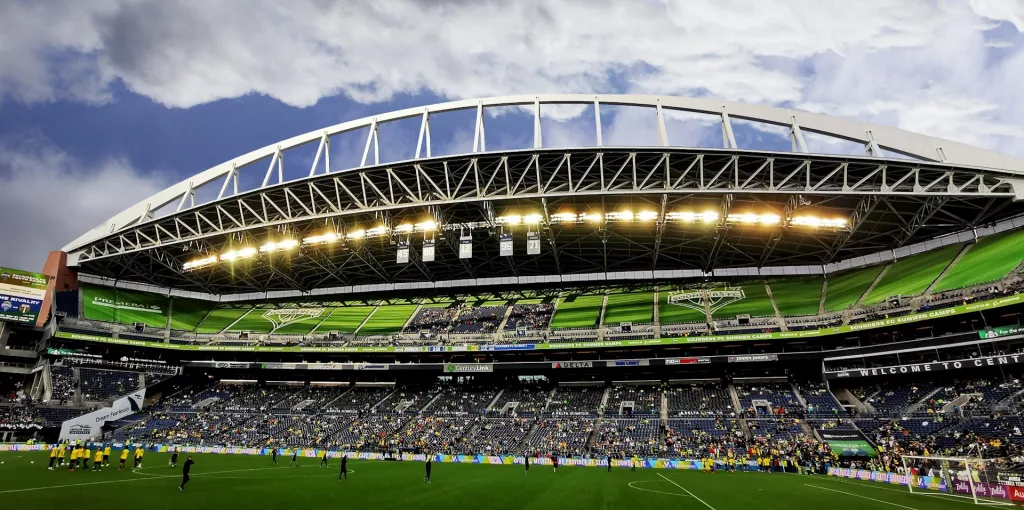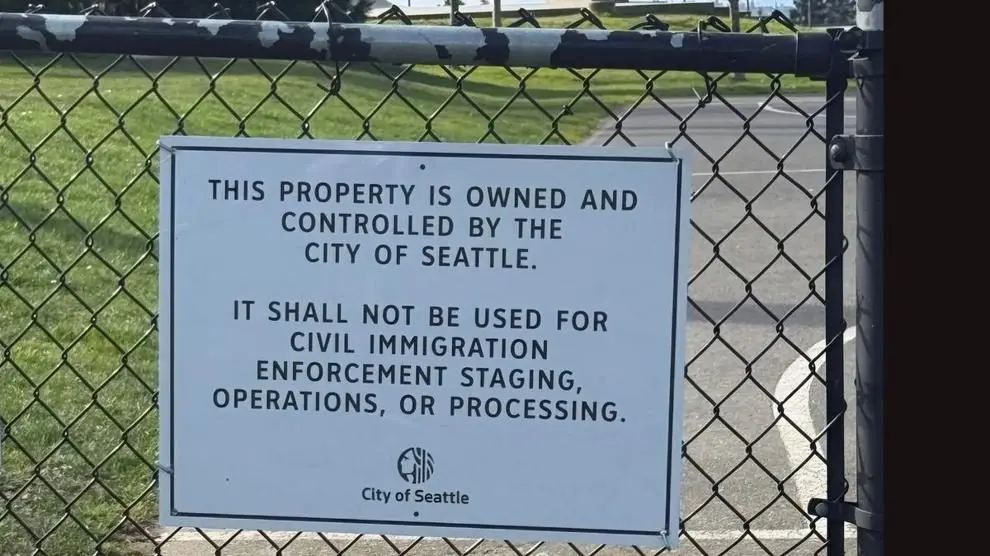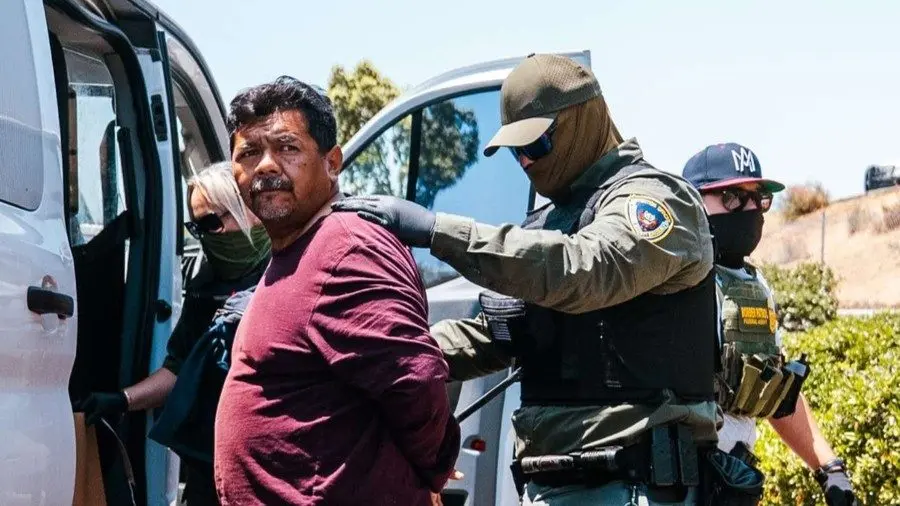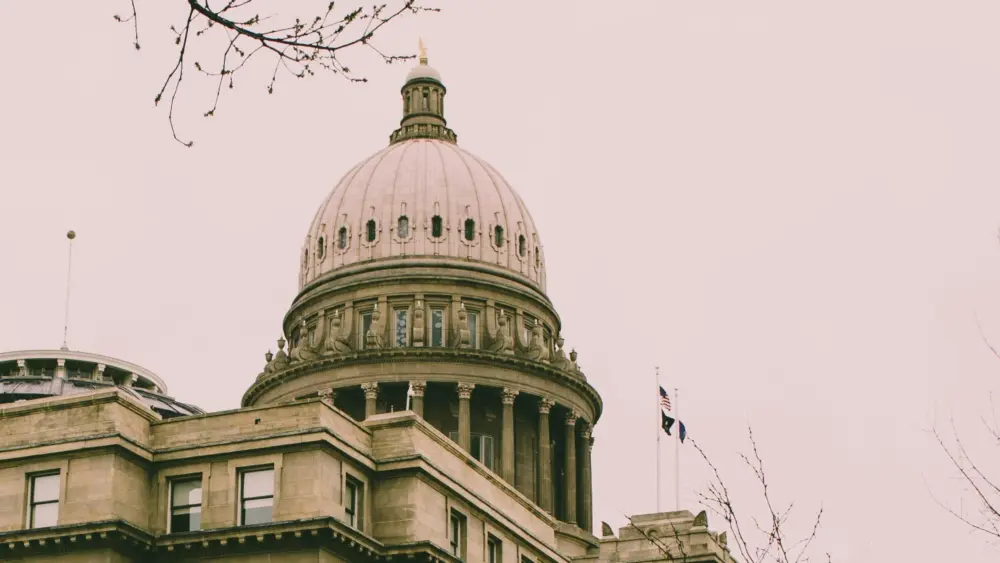$45 million will go to improvements for Lumen Field, security and transit for the biggest event in state history, estimated to bring 750,000 visitors.
SEATTLE, WA – Next year, starting June 15, Seattle will host the biggest event in state history: the FIFA 2026 Men’s World Cup.
More than 100 World Cup matches will be played across the United States, Canada and Mexico. Seattle will host six of them over three weeks, including one involving the U.S. team.
The tournament is estimated to bring 750,000 people to the region and a nearly $1 billion infusion of cash for King County’s economy. That includes more than $100 million in state and local tax revenue and nearly 21,000 new jobs. But hosting won’t be easy – or cheap.
“It’s a major event unlike anything we’ve done in recent history,” said April Putney, chief strategy officer for Seattle’s World Cup organizing committee.
During this year’s legislative session, lawmakers approved millions of dollars in funding for security and field and transportation improvements, as well as policy changes allowing cities hosting fan celebrations to have expanded alcohol service.
Lawmakers came into the session knowing it would be challenging to balance the state’s budget, and it was unclear where funding for World Cup planning would fit into the state’s financial plan.
“It’s something that we want to be successful, and it’s not something that we can prioritize above the basic pains of people in our city who are struggling,” House Majority Leader Joe Fitzgibbon, D-West Seattle, said last month.
Though most of the money powering the event comes from private and federal sources, Putney said some state funding is still necessary. Knowing the state budget’s limitations, she said, the committee had significantly narrowed its funding asks.
In the end, lawmakers responded by approving about $45 million for costs related to the World Cup. Gov. Bob Ferguson has not yet signed off on the budget and has until May 20 to do so.
Where the money is going
The biggest chunk of change from this funding will go to improvements at Lumen Field and other soccer fields across the state.
At Lumen, $19.4 million will fund long-term upgrades to security, updating the size of the field and adding more space for media and international dignitaries.
Putney said it’s important that all 16 stadiums used in the tournament are as similar as possible to ensure fair play and the best fan experience.
Another $100,000 will support field improvements at Gonzaga University in Spokane, and $1.7 million will go to the University of Washington’s field. Both universities will serve as practice fields for teams playing in Seattle.
The most important investments, Putney said, are for security and safety.
Lawmakers set aside $2.75 million for the Department of Commerce, to be distributed in the form of grants to local governments to fund law enforcement and fire department resources, emergency management, traffic control and security at event venues.
An additional $600 million will help the Washington State Patrol staff the Canadian border during the tournament. Patrols will be tasked with assisting the Department of Homeland Security in facilitating border crossings, and screening for human trafficking, drug trafficking and unlawful crossings.
Additional funding will be spent on systems to improve traffic flow and transit, with earmarks for ferry operations, additional ferry terminal and sailing crews, increased security and traffic management, and tunnel maintenance on State Route 99.
The funding to improve transportation operations includes new signage and trail crossing improvements and communications incorporating language access and accessibility.
Nine million dollars will fund grants for local transit agencies to increase transit frequency and cleaning and communications operations. That money must be split among King County Metro, regional transit authorities and cities hosting fan events.
‘Sip and stroll’
Lawmakers also approved a new law allowing cities to expand areas where alcohol can be consumed during World Cup celebrations.
Although the games will be played in Seattle, cities across the state will host “fan zones” where people can celebrate.
Under the new policy, fans at World Cup events would be able to walk around more freely while consuming alcohol instead of being cordoned off in a beer garden. At Seattle Center, this would allow fans to purchase alcohol and move throughout the whole park.
The bill would also allow bars and restaurants to share outdoor service areas – communal beer gardens – where alcohol could be consumed.
Bill sponsor Rep. Julia Reed, D-Seattle, said allowing expanded alcohol service can improve safety and security.
People may choose to drink less if they can buy one beverage and walk around instead of feeling like they must drink quickly in a beer garden, she said. It also allows for more freedom of movement, which could help if there’s a situation in which everyone needs to evacuate.
Under the new bill, cities of more than 220,000 could maintain expanded alcohol service at events beyond the World Cup into 2027.
Reed said the policy’s end date will give lawmakers the chance to review its implementation and decide if Washington should extend the changes into the future.
“Oftentimes what happens with these privileges is people get used to them, and they like them and want to continue them,” Reed said. “But this gives us a chance, in case there are unintended consequences that we’re not seeing right now, to revisit.”
Immigration concerns
Though the Seattle World Cup committee estimates up to 750,000 people will come to the region next summer, some lawmakers worry about the effects that changing immigration enforcement under the Trump administration could have on attendance at the World Cup.
In the first five months of Trump’s second presidency, the administration has focused on mass deportations of undocumented immigrants, detained international tourists and targeting some legal immigrants.
Putney said discussions around customs, visas and border control at the federal and international level are fluid.
“The World Cup is historically a moment in time in which the world is united,” she said. “Everything comes to a standstill.”
Some Washington lawmakers aren’t as confident.
“People don’t want to come to the United States of America,” Sen. Manka Dhingra, D-Redmond, said last month. “It’s going to be interesting for me to see who actually shows up and where they come from.”
Visit cascadepbs.org/donate to support nonprofit, freely distributed, local journalism.





